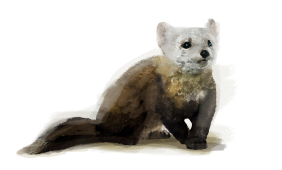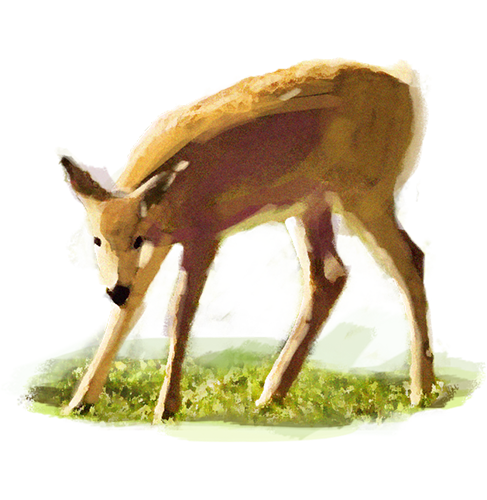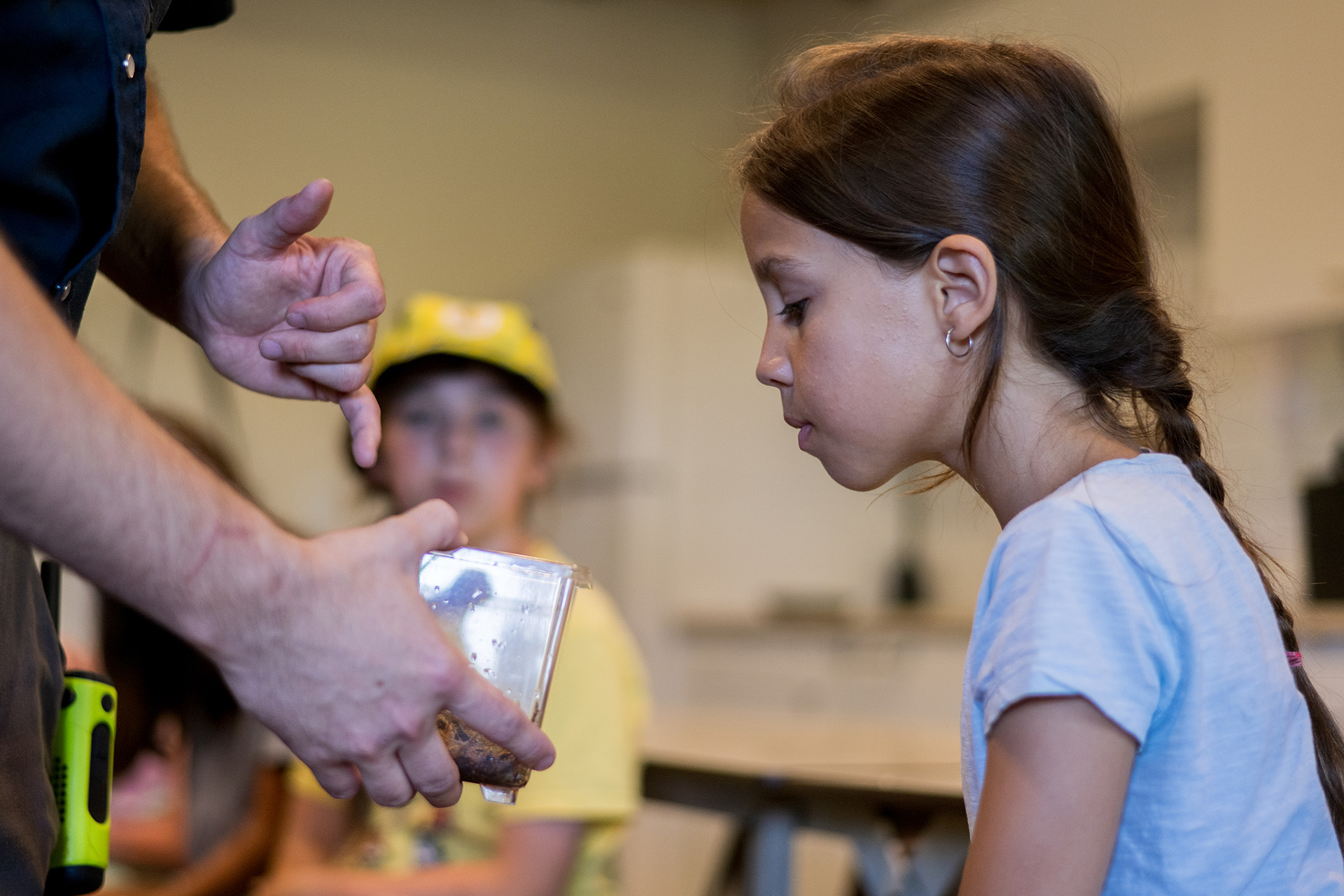
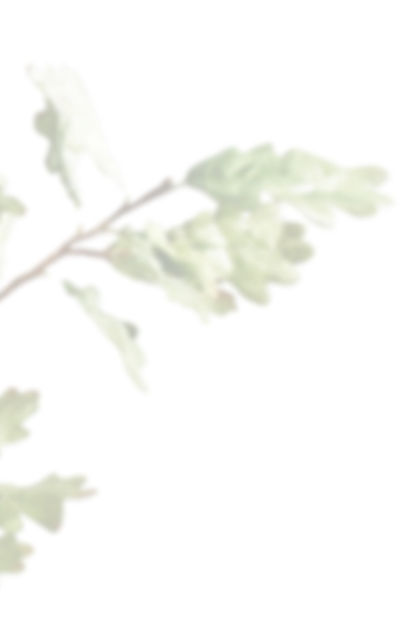
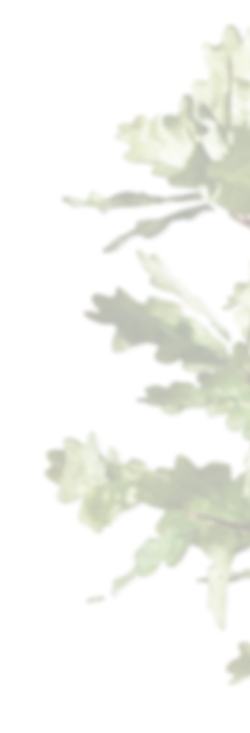
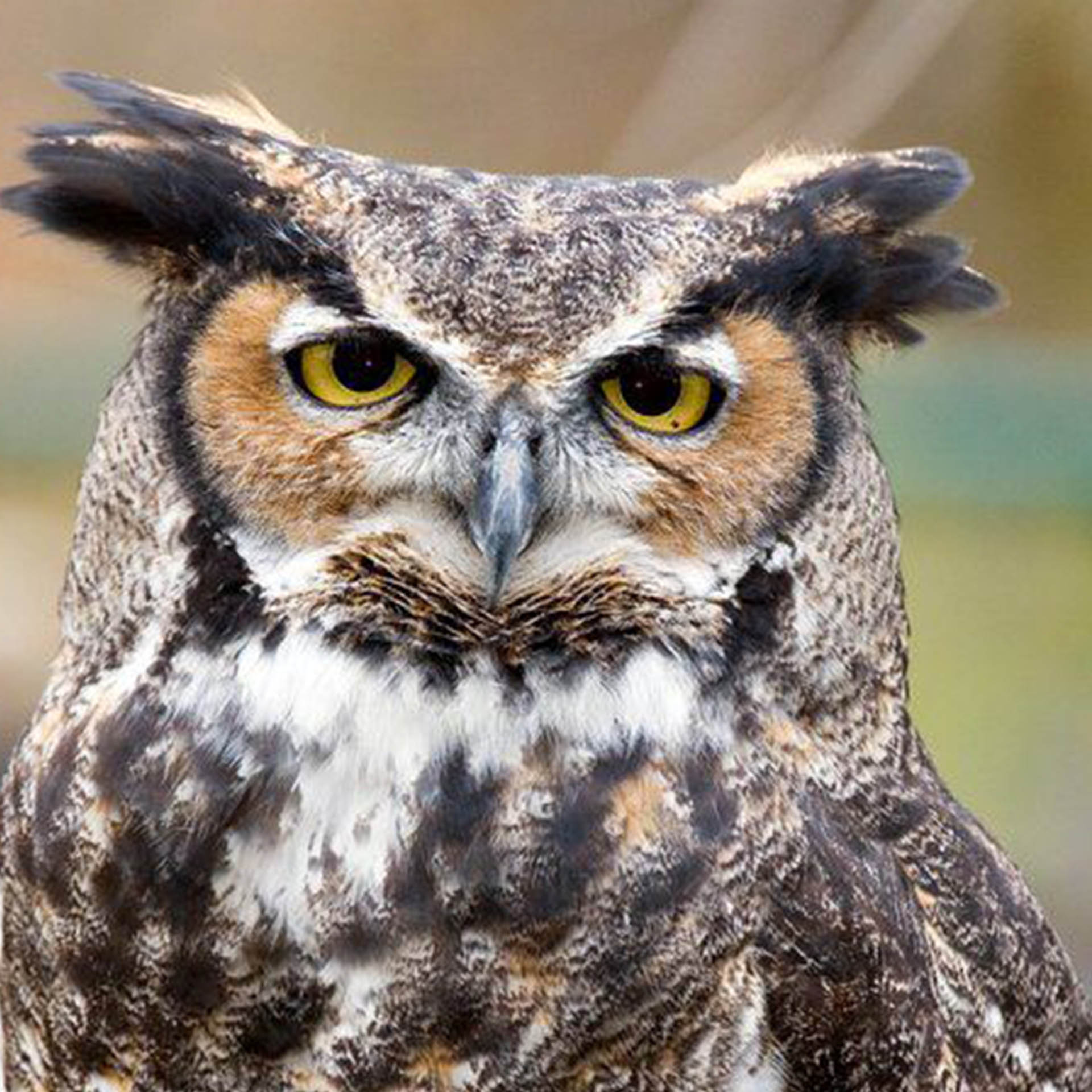
Since 1988, the Ecomuseum Zoo has focused on environmental education. We believe strongly that contact with Québec’s wildlife to help raise awareness in young people, will forge a greener future for generations to come. Each year, the educational program of the Ecomuseum Zoo reaches thousands of young people through its educational activities at the zoo, in their classroom or in a virtual setting!
Activities at the zoo
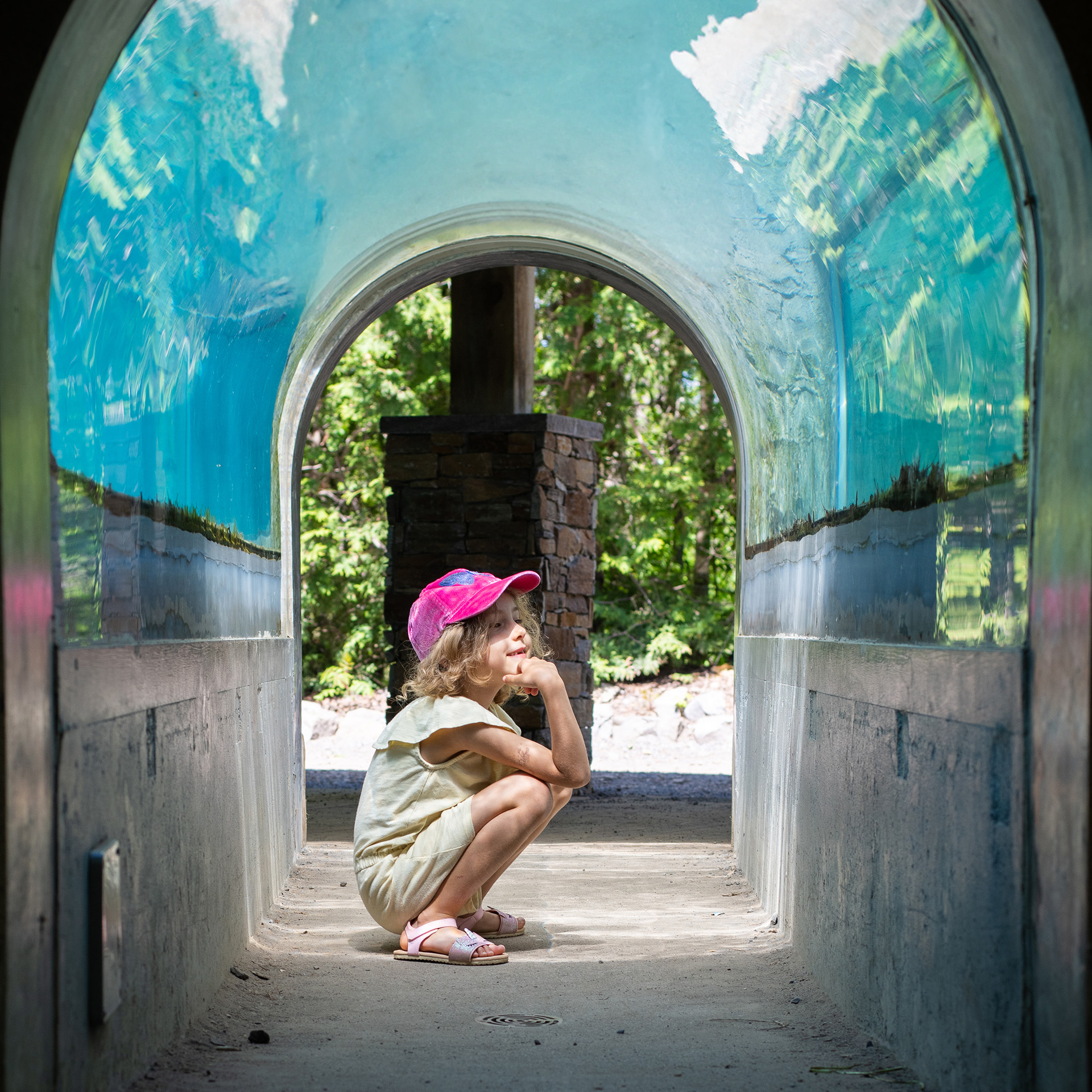
Planning to come and meet the animals with your toddler groups ? The “Mini-Explorers” activity is designed so that daycare centers and kindergarten groups can visit the zoo independently, at their own pace. Educational documentation is provided for adults, so that they can share new knowledge with curious little ones !
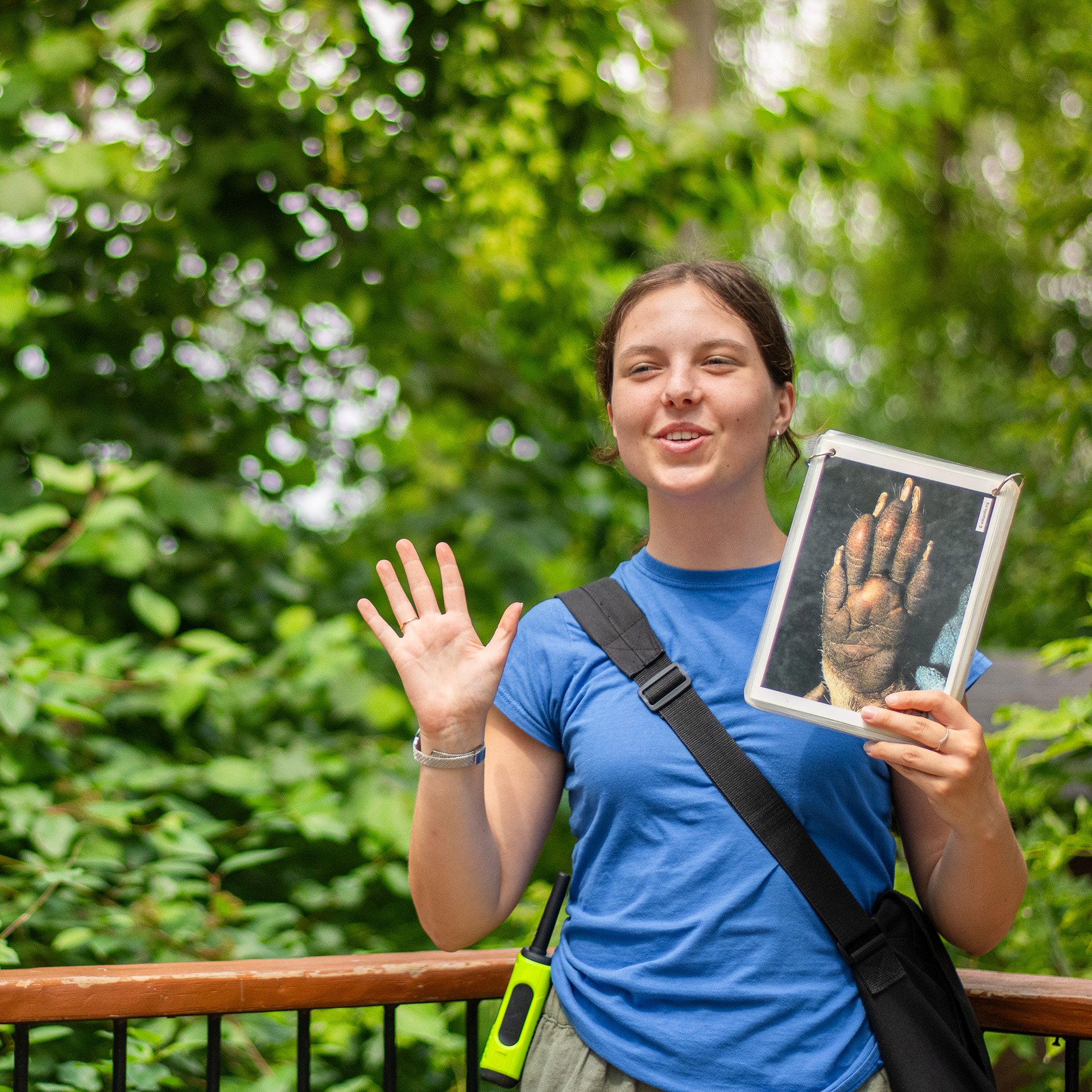
If you want to get to the heart of Quebec’s wildlife and discover everything the animals have to teach us, a guided tour of the zoo is the best option ! Our dynamic, experienced guides will share their vast knowledge with participants on a tour that’s sure to amaze !
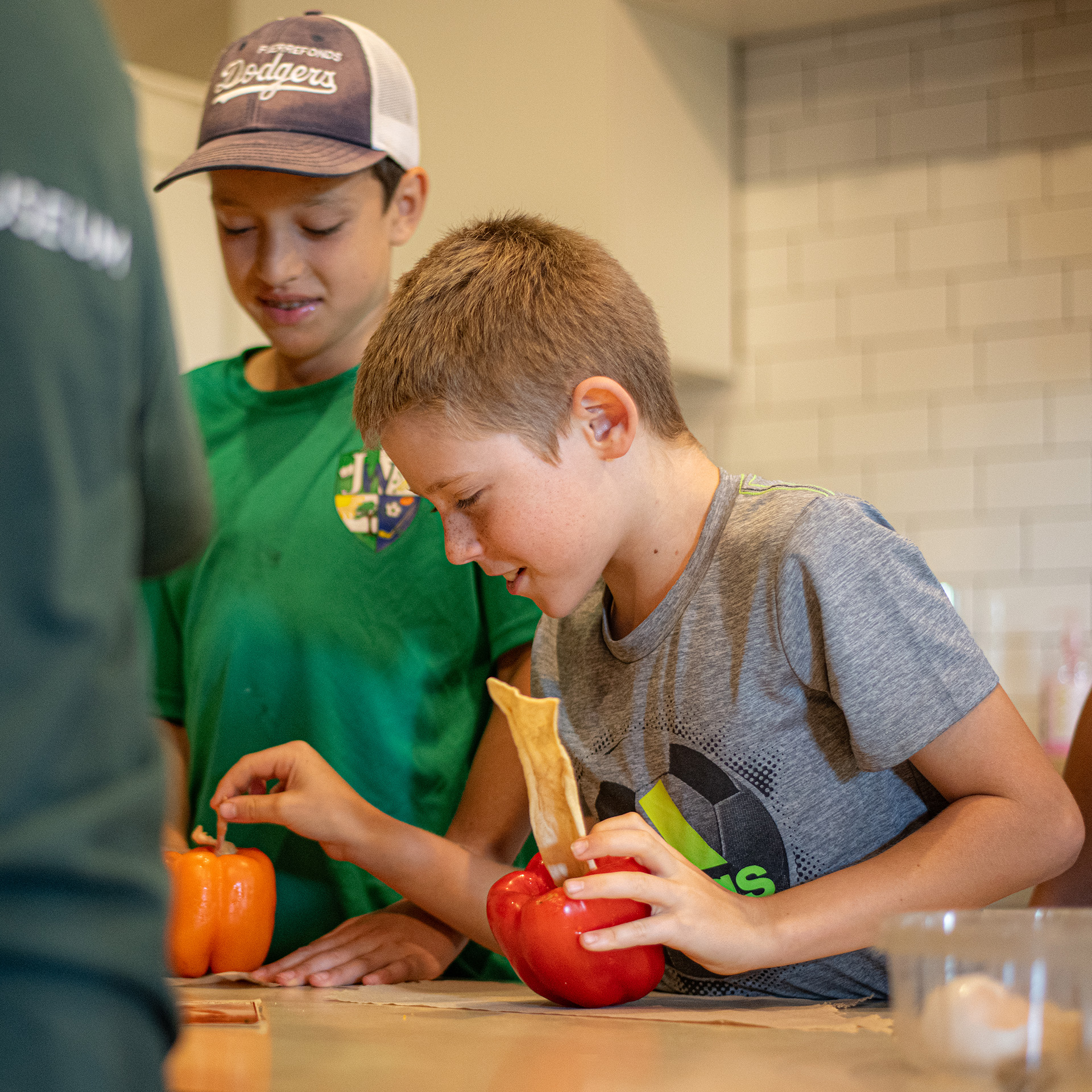
This activity is led by a zoologist in a private room and includes :
- A special dynamic presentation on the featured animal.
- Preparation of the animal’s breakfast and creation of enrichments by participants, be ready to roll up your sleeves !
- A chance for participants to feed the animals from the observation platforms !
You will be able to choose between a breakfast for the Lynx, the Wolves, the Otters and Fishers, the Foxes, or the Bear (not available between November and April).
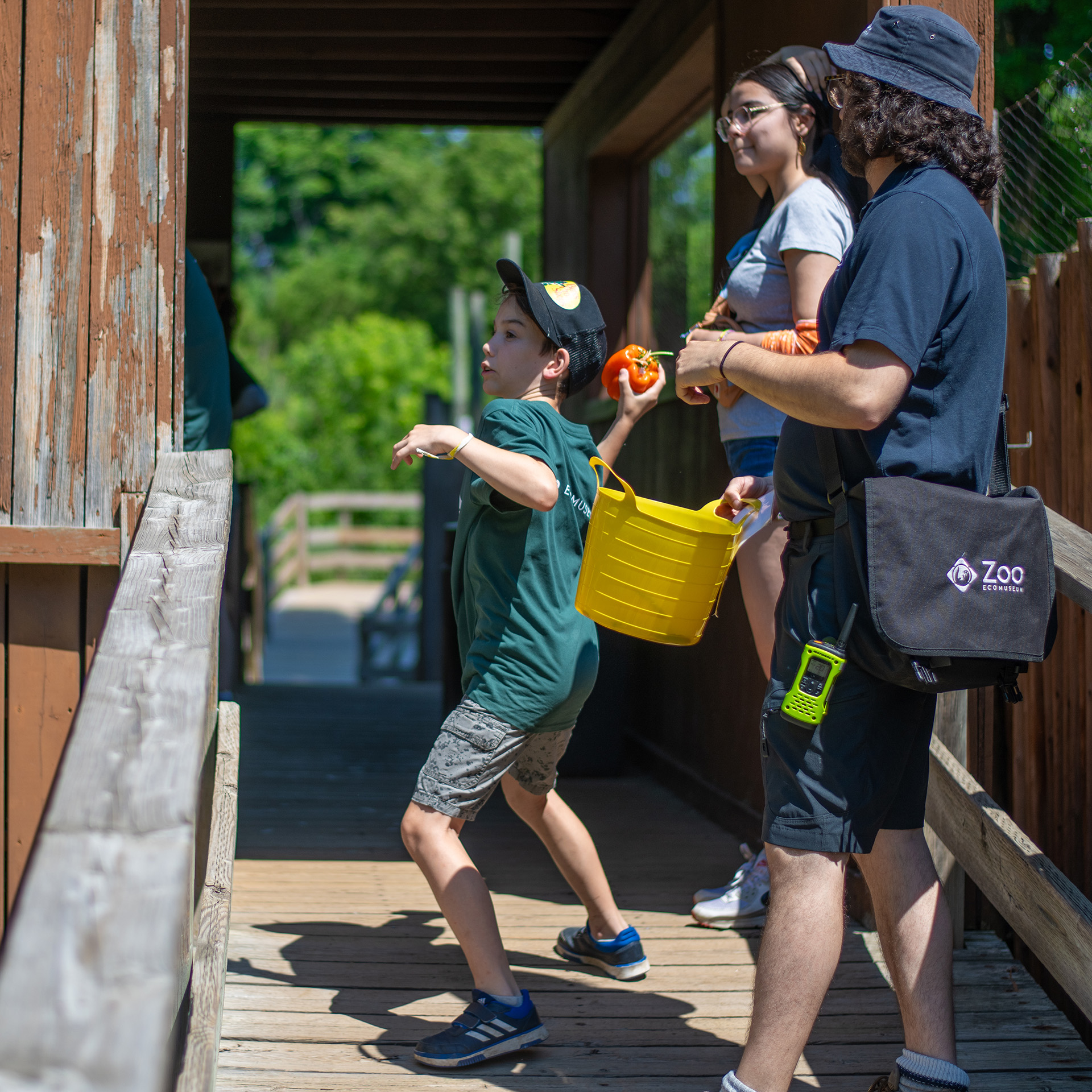
This activity is led by a zoologist in a private room and includes :
- A presentation on the zookeeper profession and an interactive game
- An up-close encounter with reptiles
- Meal preparation by the zookeepers-in-training and creation of enrichments for several animals !
- A chance to feed the animals from the observation plateforms !
Themed Presentations and Scientific Workshops
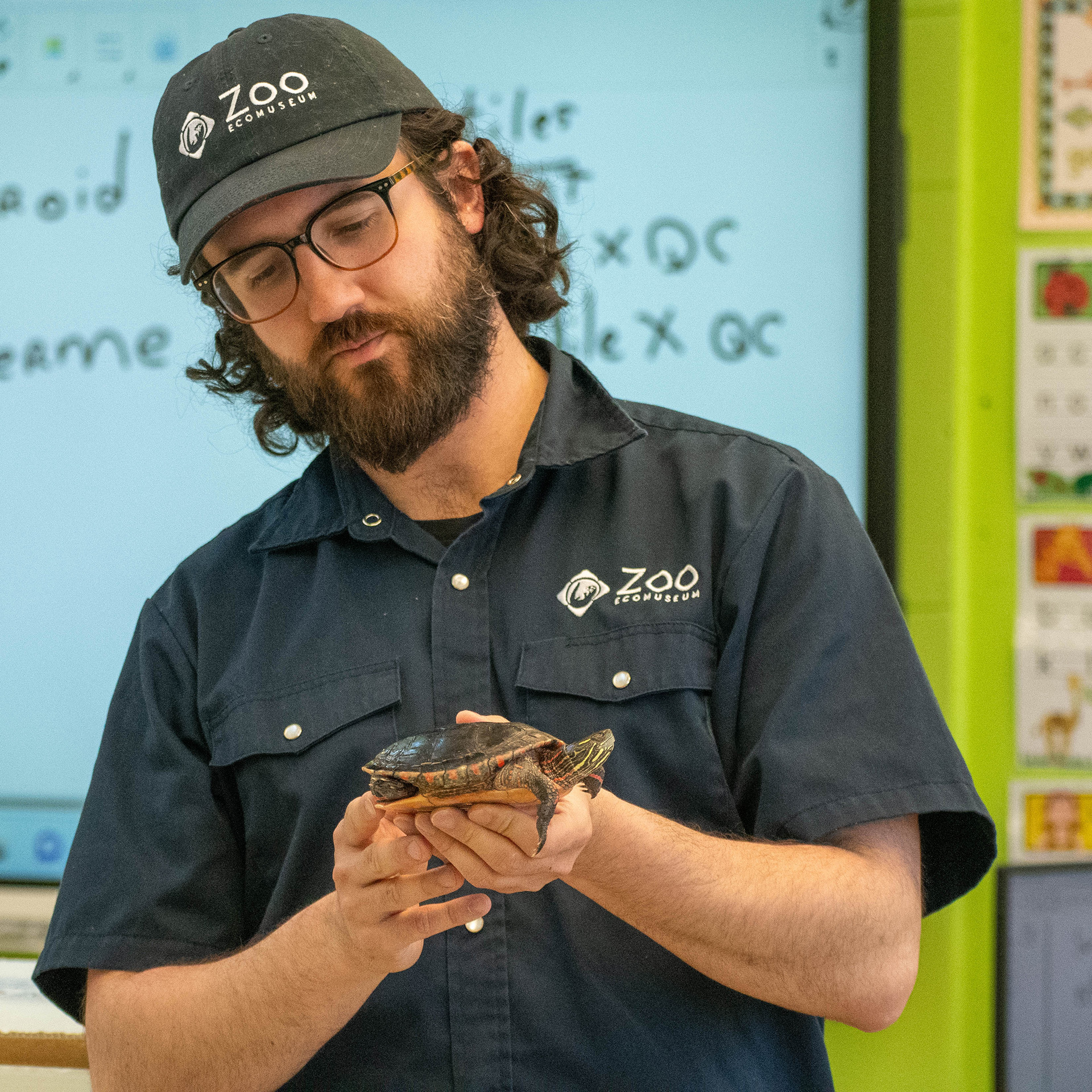
Which animals roam the habitats aross Quebec? What characteristics distinguish them, and which ones can we find even in our own backyards ? This educational and interactive presentation is led by one of our zoologists who are experts on all things wildlife and is accompanied by live animals.
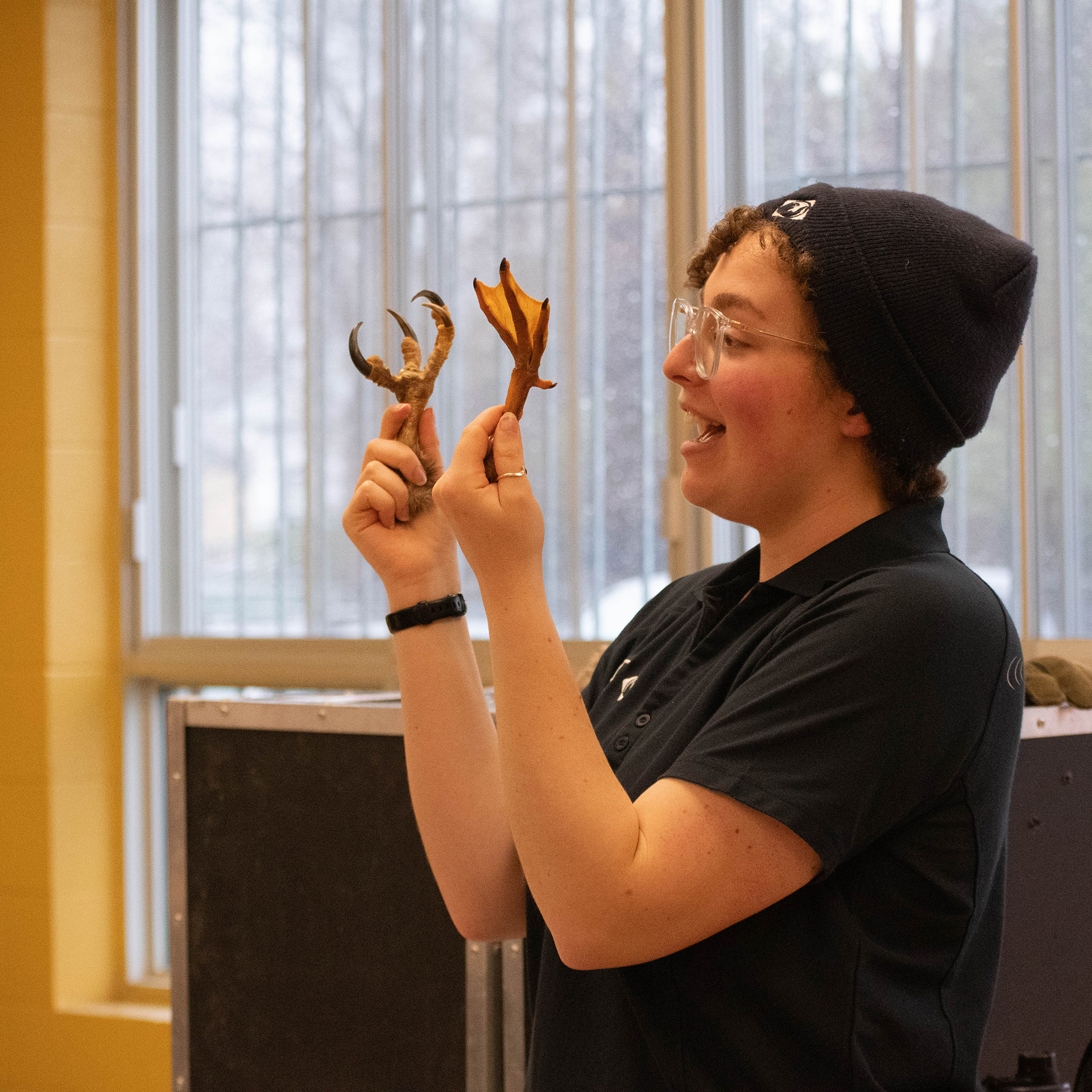
Travel with us through the province and the different ecosystems it shelters : tundra, forests, rivers...
Discover the animal interactions that make up the ecosystems that surround us, and the importance of biodiversity in maintaining these links.
Live animals, artifacts and other visual aids will accompany the presentation.
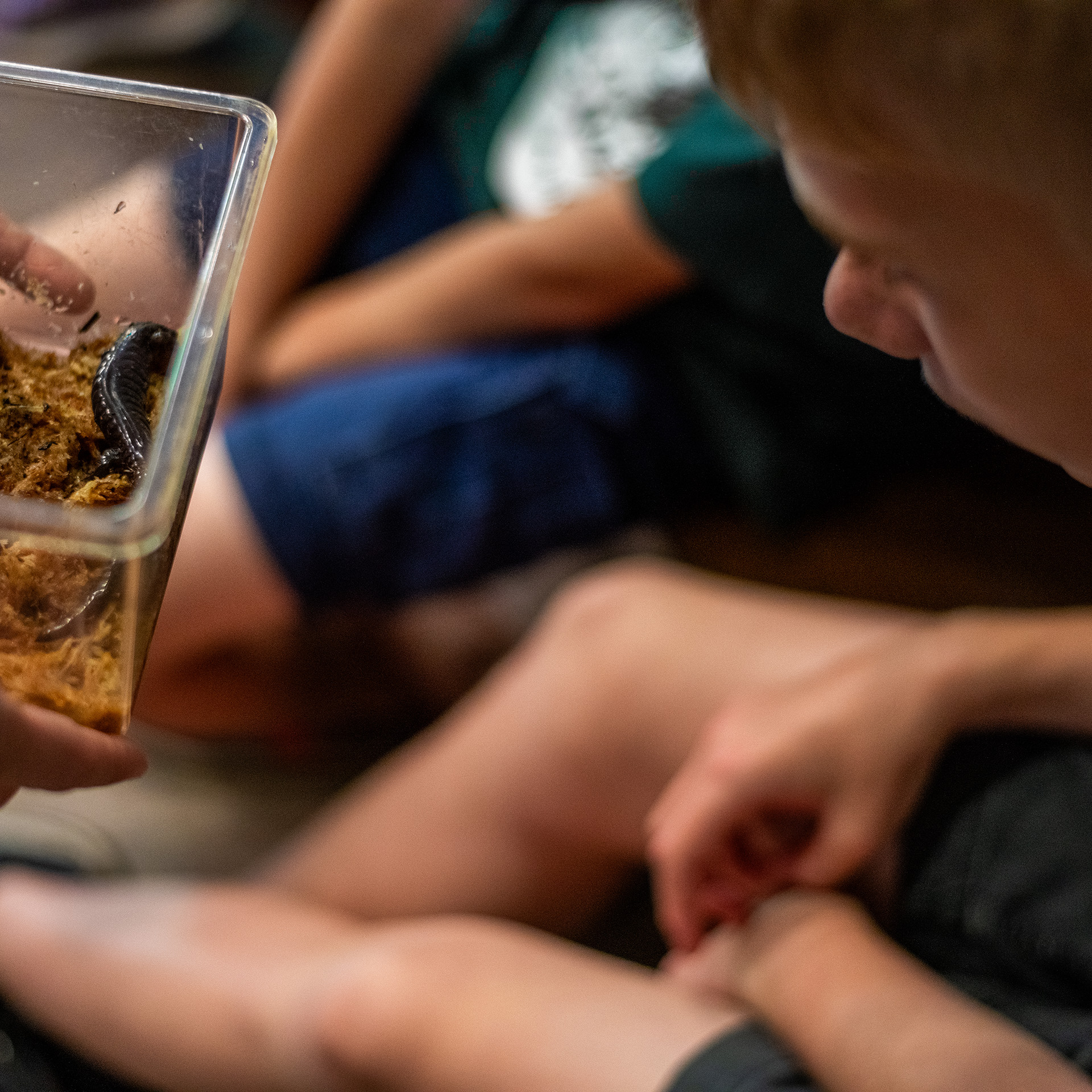
Tiny but mighty, the amphibian and reptile species found in the St. Lawrence Valley are animals with fascinating adaptations ! Learn to appreciate these cold-blooded, often underestimated animals, by discovering the challenges of their complex life cycles!
Live animals, artifacts and other visual aids will accompany the presentation.
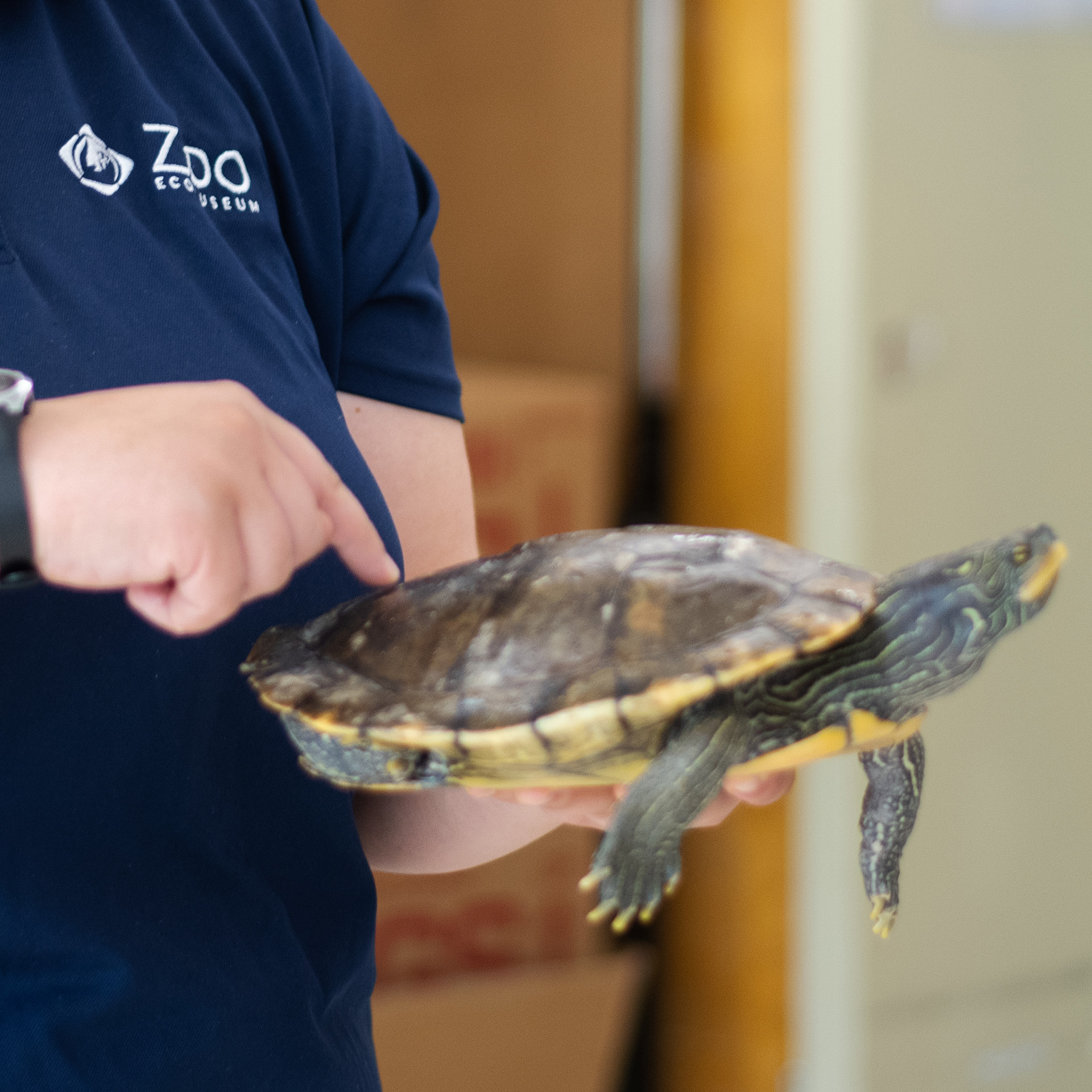
We hear a lot about protecting and conserving the natural world that surrounds us, but what does that involve ?
Imagine yourself in the shoes of a biologist from the Ecomuseum Zoo, waist-deep in water, geared up, searching for answers to better understand and conserve our province’s flora and fauna. During this presentation, you will become familiar the projects carried out by the Ecomuseum Zoo’s research and conservation team and discover how you too can take action.
Live animals, artifacts and other visual aids will accompany the presentation.
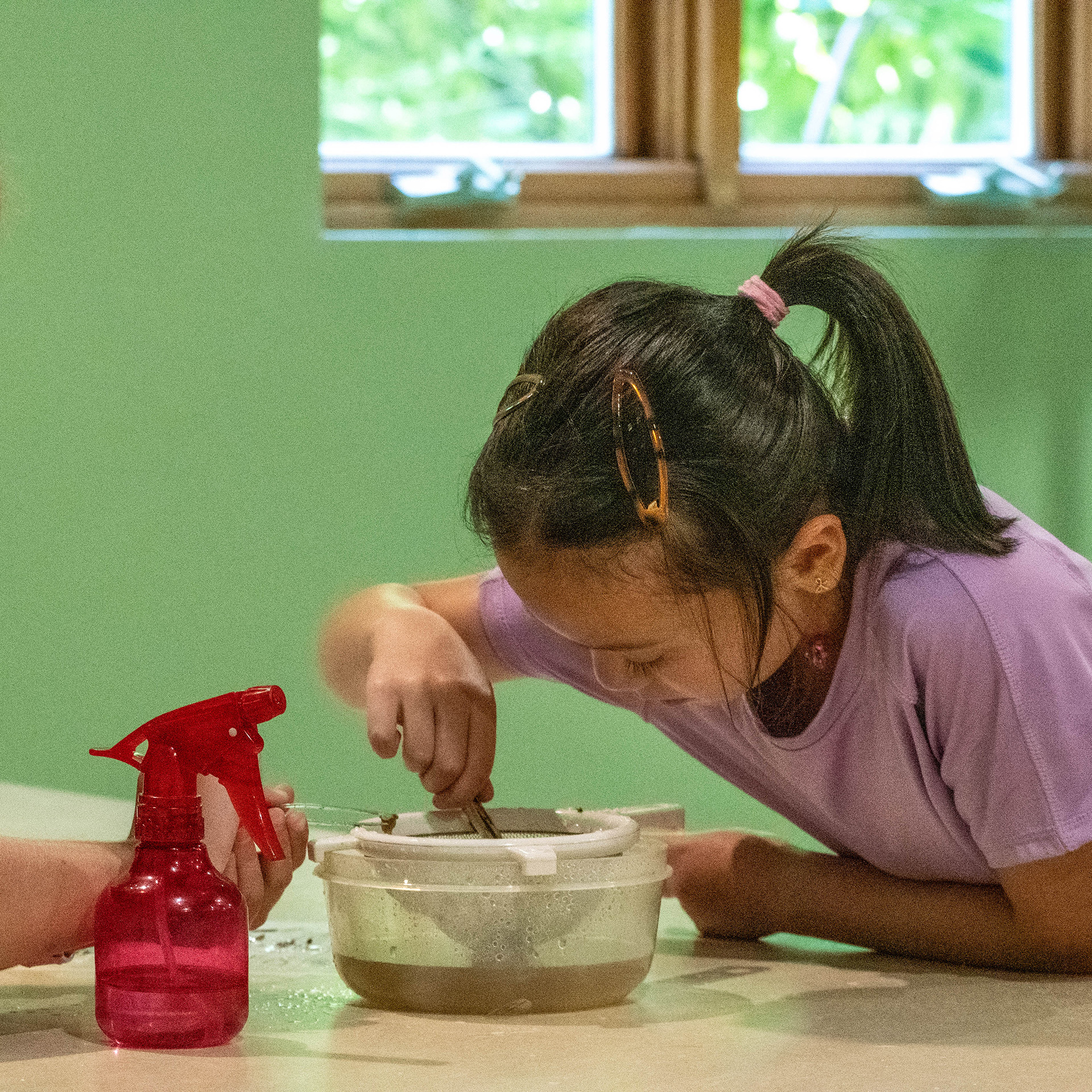
Owls are predators and eat their prey whole... But what happens to the parts they cannot digest ? In this workshop, participants will dissect pellets collected from the Ecomuseum Zoo, reconstruct the bones they find, and ultimately reveal the diet of the owls under our care !
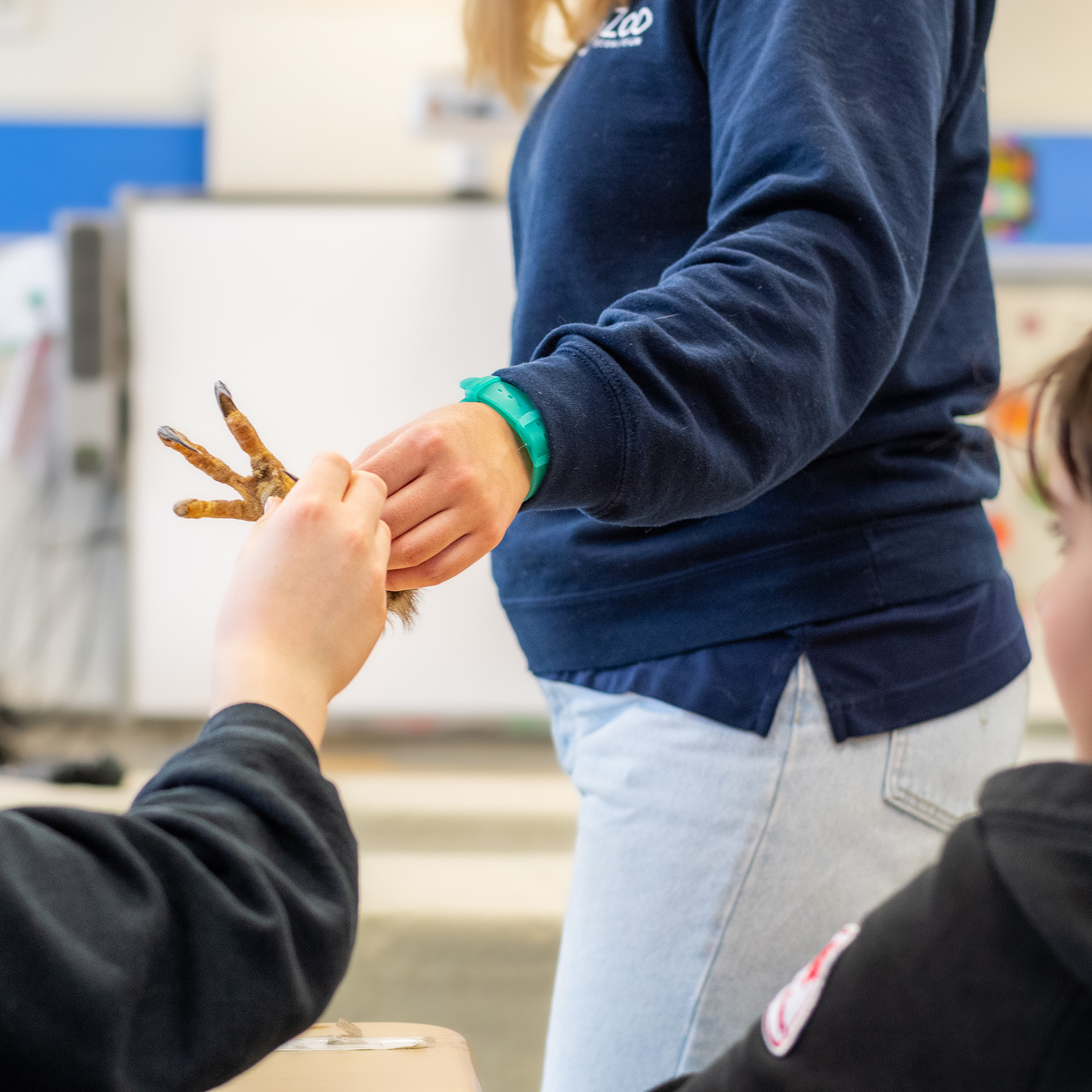
Wild animals are hard to spot in the wild, but they often leave traces behind, such as fur, footprints, sheds and moults, antlers... and droppings of course ! In this workshop, participants will learn the methods used by scientists to identify animal tracks that can be found in nature across Quebec !
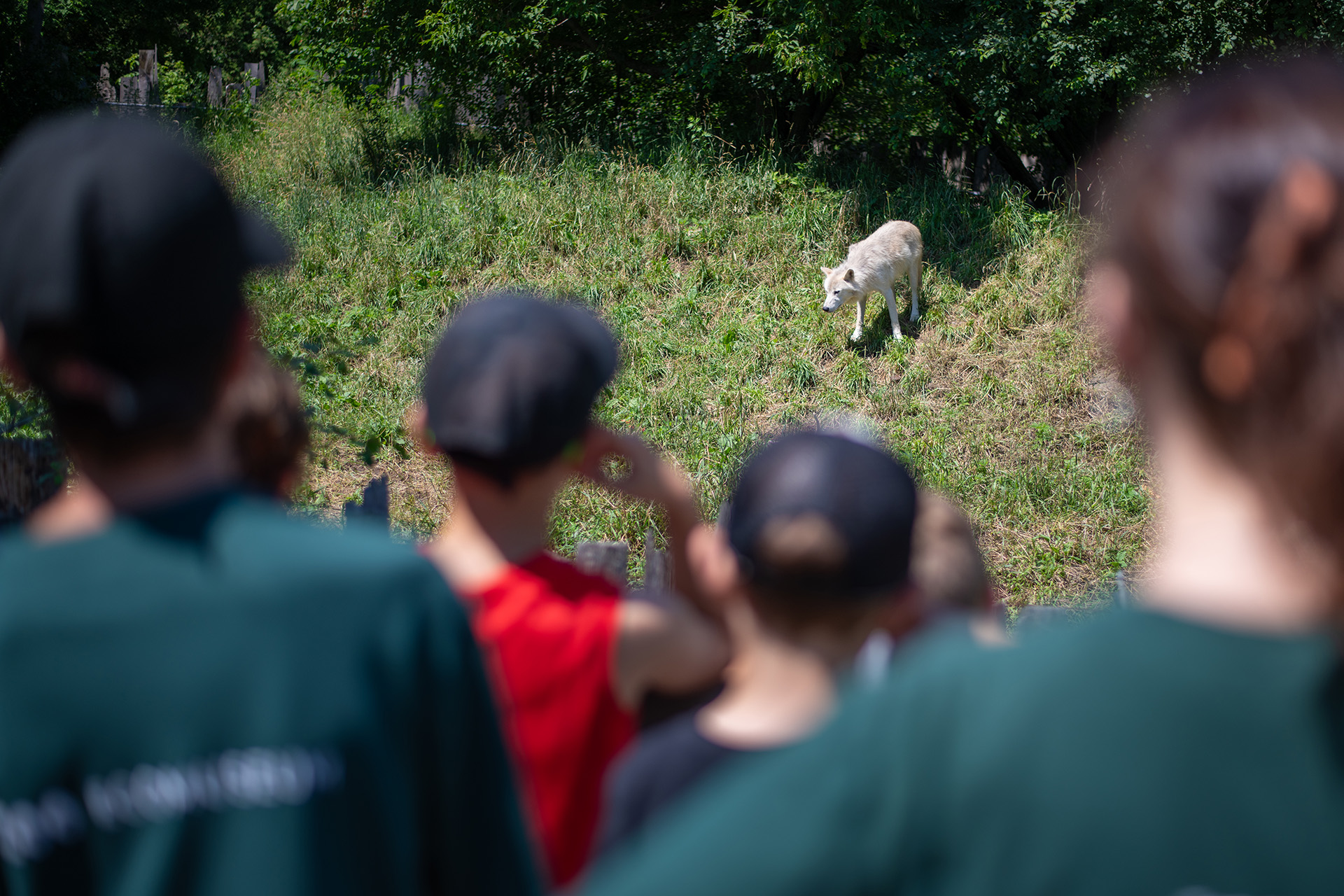
Call us at 514 457 9449 ext 0 or send us an email by clicking on the button below or at reservation@ecomuseum.ca, at least three weeks in advance.
